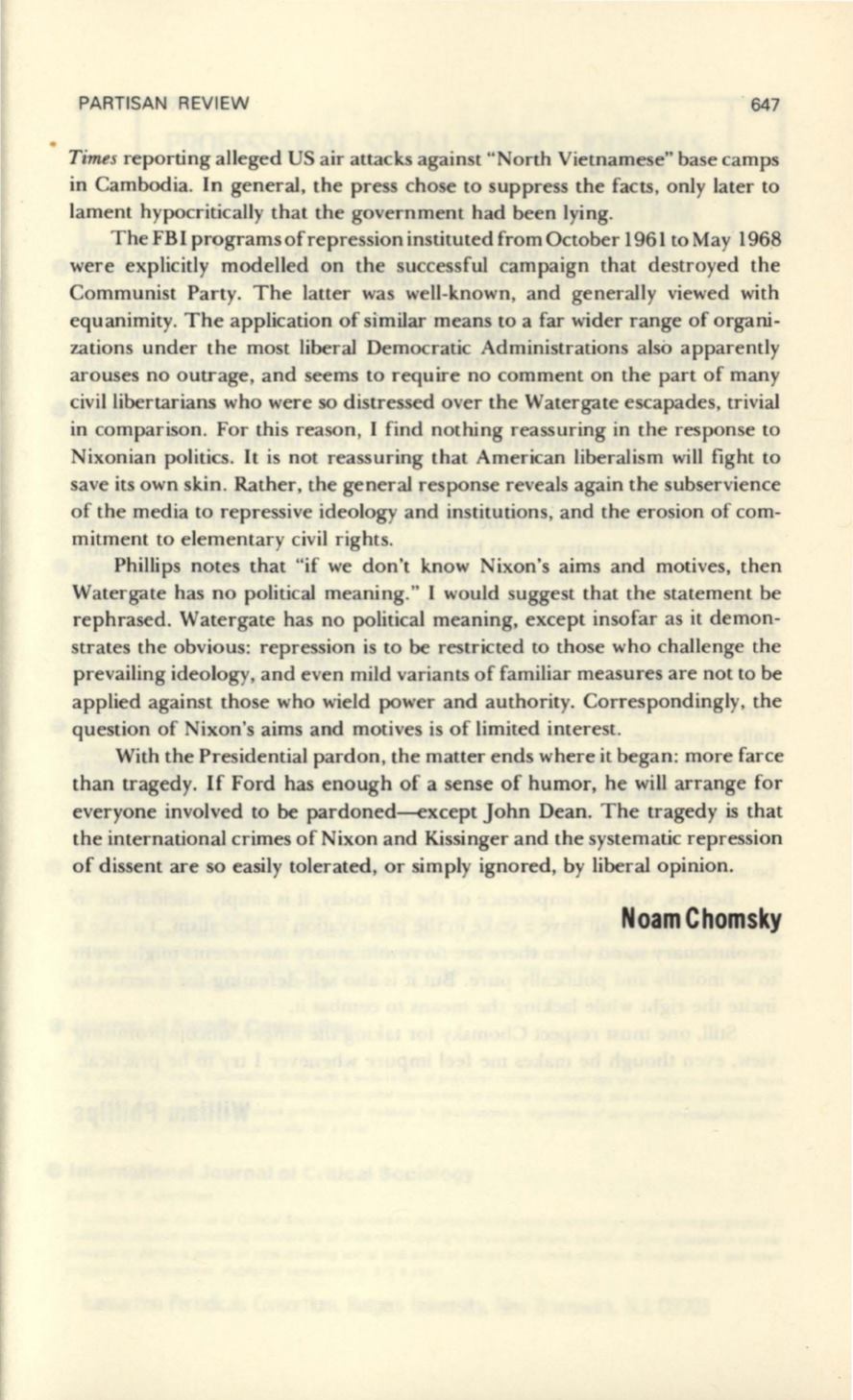
PARTISAN REVIEW
647
Times
reporting alleged US air attacks against "North Vietnamese" base camps
in Cambodia. In general, the press chose
to
suppress the facts, only later to
lament hypocritically that the government had been lying.
The FBI programs of repression instituted from October 1961 to May 196.8
were explicitly modelled on the successful campaign that destroyed the
Communist Party. The latter was well-known, and generally viewed with
equanimity. The application of similar means
to
a far wider range of organi–
zations under the most liberal Democratic Administrations also apparently
arouses no outrage, and seems to require no comment on the part of many
civil libertarians who were so distressed over the Watergate escapades, trivial
in comparison. For this reason, I find nothing reassuring in the response to
Nixonian politics.
It
is not reassuring that American liberalism will fight
to
save its own skin. Rather, the general response reveals again the subservience
of the media to repressive ideology and institutions, and the erosion of com–
mitment
to
elementary civil rights.
Phillips notes that "if we don't know Nixon's aims and motives, then
Watergate has no political meaning." I would suggest that the statement be
rephrased. Watergate has no political meaning, except insofar as it demon–
strates the obvious: repression is to be restricted to those who challenge the
prevailing ideology, and even mild variants of familiar measures are not to be
applied against those who wield power and authority. Correspondingly, the
question of Nixon's aims and motives is of limited interest.
With the Presidential pardon, the matter ends where it began: more farce
than tragedy.
If
Ford has enough of a sense of humor, he will arrange for
everyone involved to be pardoned-except John Dean. The tragedy
is
that
the international crimes of Nixon and Kissinger and the systematic repression
of dissent are so easily tolerated, or simply ignored, by liberal opinion.
Noam Chomsky


